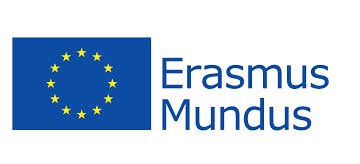Project eMundus
eMundus: Fostering international Higher Education collaboration through ICT and open education (Erasmus Mundus – Promotion Projects-EACEA/38/12, Grant Agreement: 2013-2508/001-001)
The eMundus project aims to strengthen cooperation and awareness among Higher Education Institutions worldwide by exploring the potential of Open Approaches (e.g. OER, MOOCs and VM) to support long term, balanced, inter-cultural academic partnership for improving learning and teaching through Open Education approaches.
Funding source
 The eMundus project is carried out as part of thePromotion of European Higher Education sub-programme within the Erasmus Mundus Programme of the European Commission. The eMundus Consortium integrates nine partners from around the world: MENON Network (Belgium),University of Leicester (UK), Universidad Internacional de la Rioja (Spain), University of Sao Paulo (Brazil), Universidad Autónoma Metropolitana (Mexico), Moscow State University of Economics, Statistics and Informatics (Russian Federation), OER Foundation (New Zeland), Athabasca University (Canada) and Universitas Siswa Bangsa Internasional (Indonesia).
The eMundus project is carried out as part of thePromotion of European Higher Education sub-programme within the Erasmus Mundus Programme of the European Commission. The eMundus Consortium integrates nine partners from around the world: MENON Network (Belgium),University of Leicester (UK), Universidad Internacional de la Rioja (Spain), University of Sao Paulo (Brazil), Universidad Autónoma Metropolitana (Mexico), Moscow State University of Economics, Statistics and Informatics (Russian Federation), OER Foundation (New Zeland), Athabasca University (Canada) and Universitas Siswa Bangsa Internasional (Indonesia).
Project rationale and relevance
The Open Education revolution, and especially the rise of OER, MOOCs and Virtual Mobility, challenges the Higher Education internationalisation paradigm and has the potential to radically change the approaches to mobility, transparency, quality assurance and effectiveness. We believe that Open Education is not just a solution to the challenges of reducing the unitary cost of higher education, but rather a way to help establish long-term international partnership.
In this context, eMundus aims to explore the potential of Open Education, MOOCs and Virtual Mobility to support long-term, balanced and inter-cultural academic partnership.
Methodology and associated workplan
In the next 24months, the project team will work to:
- Map the global state of the art of MOOCs and Virtual Mobility developments and identify successful cooperation patterns among higher education institutions.
- Share useful tools and successful practices around Open Education, MOOCs, and Virtual Mobility.
- Mainstream the best practices of the world leaders in the field towards universities that are beginning to adopt MOOCs and Virtual Mobility as strategies for their internationalisation.
Time span: 2013-2015
Funding type: European public
